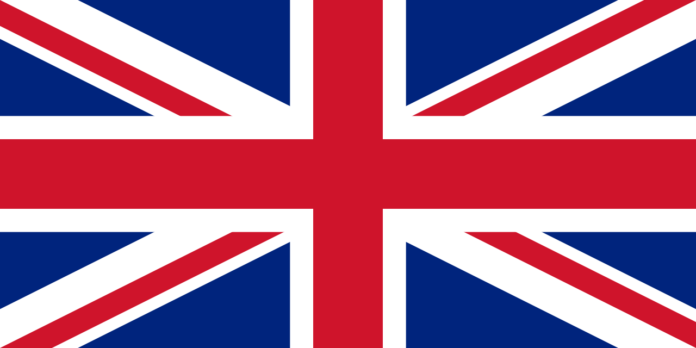Cameron Stuart | Reporter
In the early 1960s, it seemed like the United States was going through a time of peace. It soon were under siege, however, by a sound and culture that would change the American landscape forever. It became known as the British Invasion. The music and the haircuts were so revolutionary that not only did it change rock ’n’ roll, but it got Americans on the British bandwagon again for the first time since the turn of the 17th century. Almost three decades later, the next wave of British music swept up the rest of the world, yet it barely broke the shores of the United States.
By the ’90s, The Beatles had long since broken up and other British acts like The Rolling Stones had lost their luster, leaving the state of popular music across the pond in a serious rut. As a result, the entirety of popular music both in America and Britain suffered during the ’80s. In 1994, British music announced its comeback in a huge way. It was called Britpop, and it was bloody massive.
Britpop was a movement that payed homage to music of the past. It was music that was leagues closer to The Beatles and The Kinks than it was to Genesis or even contemporary acts like the Smiths. The bands coming out of England in the ’90s had the look too. They were guitar bands with jackets, cigarettes, long hair and a whole lot of attitude. It was the edge music had been missing for nearly two decades. While it became a cultural phenomenon in England, it barely made an impact here in the United States, which is nothing short of a travesty.
Undoubtedly the kings of Britpop were Oasis, a Manchester band fronted by two brothers, Liam and Noel Gallagher, who now hate each other. They had their fair share of dust-ups and tantrums, but they had even more No. 1 hits. In fact, according to Official Charts, they had eight singles top the charts in the U.K. In the U.S., however, their greatest chart successes came with “Champagne Supernova” and “Wonderwall,” both of which only hit No. 10 in 1996, according to Billboard. The band won a BRIT award in 2010, with its 1995 album “(What’s The Story) Morning Glory” being named “Best British album of the last 30 years.” In the U.S., the album never even hit number one on the Billboard. In 1996, they toured the U.S. to little fanfare, playing in small arenas all over the country, including places like Fort Mill, S.C., and West Palm Beach, Fla. That same year, they played arguably the most influential concerts in British history. Oasis performed for 250,000 fans at Knebworth Park, and it could have been even higher as 4% of the British population (2.5 million people) applied for tickets, That means they could’ve sold out the massive outside arena 18 times, according to the BBC.
Oasis’ biggest rival on the charts, London outfit Blur, nary found success in the States either. The two’s rivalry hit a fever pitch in the summer of 1995, when they both released highly anticipated singles on the same day, making for a mad dash to a top of the charts. In a surprising turn of events, Blur were actually the group that hit No. 1 the next week with “Country House,” which didn’t even crack the top 40 in the U.S., according to Billboard. Their only real American success came with “Song 2,” still a staple at sports games around the country, which only peaked at No. 6.
One of the most influential albums of the decade in Britain was “Urban Hymns,” the third album released by The Verve. According to Official Charts, the album spent 12 weeks at No. 1 in the U.K. in 1997, with three singles landing in the top 10. The single that peaked at No. 1, however, was actually “The Drugs Don’t Work,” not the song that the band is solely known for in the U.S., “Bittersweet Symphony.” Even while that was their only hit in the U.S., it not only peaked at No. 12, but it was the only single by The Verve ever to chart in America.
The Stone Roses, the band that is widely regarded as the one that brought guitar music back to the British mainstream, never even toured the U.S., saying America wasn’t “ready for them yet.” Unfortunately but unsurprisingly, the genius band was right. I can’t tell you why such great music went largely unnoticed in the U.S. Just like how our parents and grandparents perfected their British accents listening to John Lennon and Mick Jagger talk, the dialogue of millennials should be littered with “d’you know what I mean” and “innit” in Liam Gallagher’s iconic Mancunian accent. Instead, the nation was infatuated with songs about being a Barbie Girl and guys being too sexy for their shirt.
A lack of American success for these bands is simply befuddling and, who knows, it may have been why they couldn’t last. All of the bands mentioned either have broken up or no longer tour regularly and none of them perform in the U.S. anymore. Verve frontman Richard Ashcroft and Liam Gallagher played a solo tour as co-headliners through the States last year, playing in small concert venues compared to crowds three or four times the size in Europe. With the lack of success for iconic Britpop bands, it is no wonder why there aren’t any good guitar bands anymore, save a few holdovers like The Killers and The Foo Fighters. With the state of the pop charts today, with little to no rock bands at all, this was the British invasion America desperately needed.






